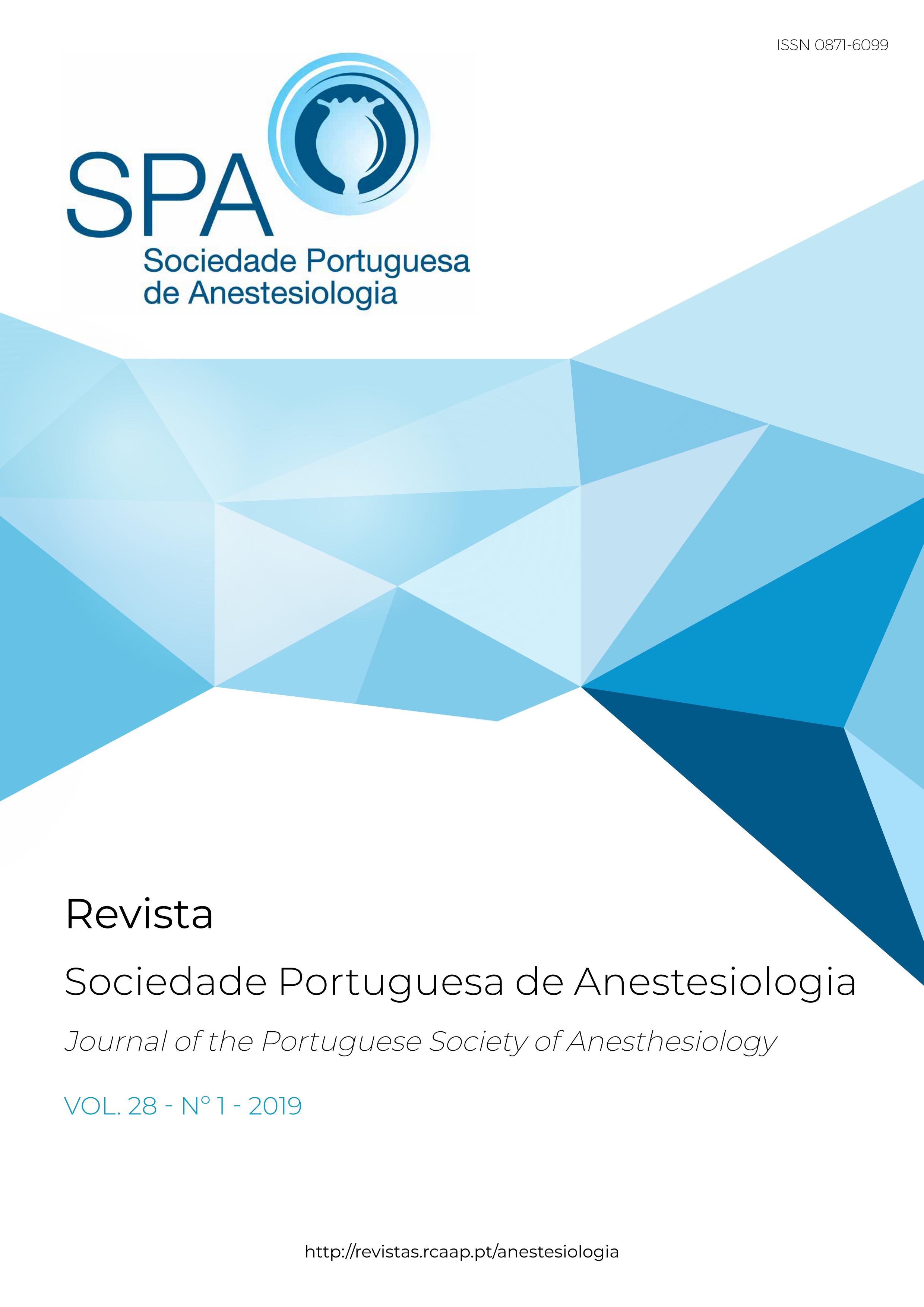Professional Motivation of Anaesthesiologists in Portugal
DOI:
https://doi.org/10.25751/rspa.15241Keywords:
Job Satisfaction; Motivation; Anesthesiologists Medical Staff, Hospital; Surveys and QuestionnairesAbstract
Background: Labour motivation has been gaining a prominent status in organizational performance, with focus on strategic management, individual and group performance, quality and success of results.
The purpose of this study is to evaluate professional motivation of anaesthesiologists in Portugal and different sociodemographic and professional groups.
Methods: A transversal observational analytical and descriptive study, conducted through a questionnaire sent by e-mail to all anaesthesiologists of Portuguese Anaesthesiology Society. The questionnaire has 16 questions of demographic and professional order and 28 questions directed to labour motivation. A descriptive and exploratory analysis of the data was performed through SPSS 24.0®.
Results: A total of 110 physicians responded to the survey. The motivation scores were always equal or greater than 3 in all of domains. Work organization was the domain with the lowest motivation score, and attendings had worse scores when compared to residents (p<0.05). Anesthesiologists working in non-university hospitals, those with private activity and singles appear to be more
motivated (p<0.05).
Discussion: The motivational results may be considered satisfactory and encouraging, although we must take into account that answers to this questionnaire most likely came from motivated anesthesiologists
who answered voluntarily.
Conclusion: Anaesthesiology residents and attendings seem to maintain satisfactory levels of motivation, although organizational performance received worse scores than other domains of the questionnaire and this is an issue that justifies further reflection and improvement.
Downloads
References
2. World Health Organization. The World Health Report - Health Systems Financing: The Path to Universal Coverage. Geneva: WHO; 2010.
3. A Siyam, MR Dal Poz. Migration of health workers: WHO code of practice and the global economic cirsis. Geneva: World Health Organization; 2014.
4. Pinder CC. Work Motivation in Organizational Behaviour. London: Psychology Press; 1998.
5. Tsounis A, Sarafis P, Bamidis P. Motivation among physicians in Greek public health-care sector. Br J Med Res. 2014;4:1094-1105.
6. Lobos J. Teorias sobre motivação no trabalho. Rev Admin Empresas. 1975;15:17-25.
7. Maslow AH. A theory of human motivation. Psychol Rev. 1943;50:370-96.
8. Ferrreira A, Diogo C, Ferreira M, Valente AC. Construção e validação de uma Escala Multi-Factorial de Motivação no Trabalho (Multi-Moti). Comportamento Organizacional Gestão. 2006;12:187-98.
9. Rego, A. Os motivos de sucesso, afiliação e poder: desenvolvimento e validação de um instrumento de medida. Análise Psicol. 2000;18:335-44.
10. Marôco J, Marôco AL, Leite E, Bastos C, Vazão MJ, Campos J. Burnout em profissionais de saúde portugueses: uma análise a nível nacional. Acta Med Port. 2016;29: 24-30. doi: 10.20344/amp.6460.
11. Lemos P, Guedes A, Mourão J, Lima JF, Veiga J, Chedas M,et al. Censos 2017: Existe número suficiente de anestesiologistas em Portugal? Acta Med Port. 2018;31:254-64. doi: 10.20344/amp.10094.
Downloads
Published
How to Cite
Issue
Section
License
Articles are freely available to be read, downloaded and shared from the time of publication.
The RSPA reserves the right to commercialize the article as an integral part of the journal (in the preparation of reprints, for example). The author should accompany the submission letter with a declaration of copyright transfer for commercial purposes.
Articles are published under the terms of the Creative Commons Attribution Non-Commercial License (CC BY-NC).
After publication in RSPA, authors are allowed to make their articles available in repositories of their home institutions, as long as they always mention where they were published.


